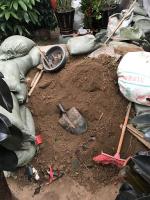Is Rain Water Good for Weed Plants?
As a weed plant grower, you may be wondering whether or not rainwater is good for your plants. After all, rainwater is free and readily available, and many gardeners swear by it. However, before you start collecting rainwater for your weed plants, it's essential to understand the advantages and disadvantages of using it.
The Pros of Using Rainwater for Weed Plants
One of the biggest advantages of using rainwater for your weed plants is that it's natural and free of harmful chemicals. Unlike tap water, which often contains chlorine, fluoride, and other chemicals that may be harmful to your plants, rainwater is pure and free of any additives that may harm your plants' growth.
In addition, rainwater is typically rich in nutrients that your weed plants need to thrive, such as nitrogen, potassium, and phosphorus. These nutrients are essential for your plants' growth and development, and using rainwater can provide your plants with the necessary nutrients they need to reach their full potential.
The Cons of Using Rainwater for Weed Plants
While there are several benefits to using rainwater for your weed plants, there are also some potential drawbacks to consider. For instance, rainwater may be acidic, which can affect your plants' pH levels. This can be particularly harmful to young plants or those that are sensitive to pH imbalances, so it's essential to monitor your plants' pH levels carefully.
In addition, rainwater may contain pollutants, such as sulfur or nitrogen dioxide, that can harm your plants. These pollutants can accumulate in your soil or plants over time, leading to reduced growth and yield. To avoid this, it's essential to test your rainwater regularly and ensure that it's safe for your plants.
How to Use Rainwater for Your Weed Plants
If you decide to use rainwater for your weed plants, there are a few things you should keep in mind. First, ensure that your collection system is clean and free of debris. This will help prevent any contaminants from entering your rainwater and affecting your plants.
Next, it's crucial to test your rainwater regularly to ensure that it's safe for your plants. You can do this by using a pH meter or testing kit to check the pH levels and nutrient content of your water.
Finally, make sure that you're using the right amount of rainwater for your plants. While rainwater can be rich in nutrients, it's also important not to overwater your plants or drown their roots. Use a watering can or hose to apply your rainwater carefully, and avoid saturating your plants' soil.
Conclusion
Overall, rainwater can be a great option for weed plant growers looking for a natural and cost-effective way to nourish their plants. However, it's essential to be aware of the potential risks of using rainwater and take steps to ensure that it's safe for your plants. By following these guidelines and monitoring your plants' growth carefully, you can use rainwater to help your weed plants thrive.

 how many times do yo...
how many times do yo... how many planted tre...
how many planted tre... how many pine trees ...
how many pine trees ... how many pecan trees...
how many pecan trees... how many plants comp...
how many plants comp... how many plants can ...
how many plants can ... how many plants and ...
how many plants and ... how many pepper plan...
how many pepper plan...






























